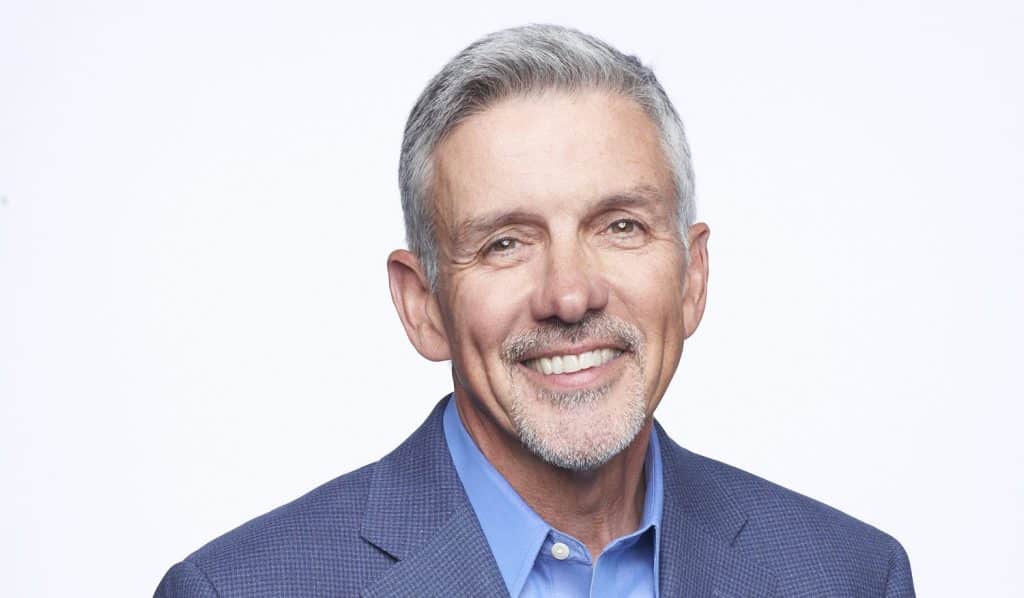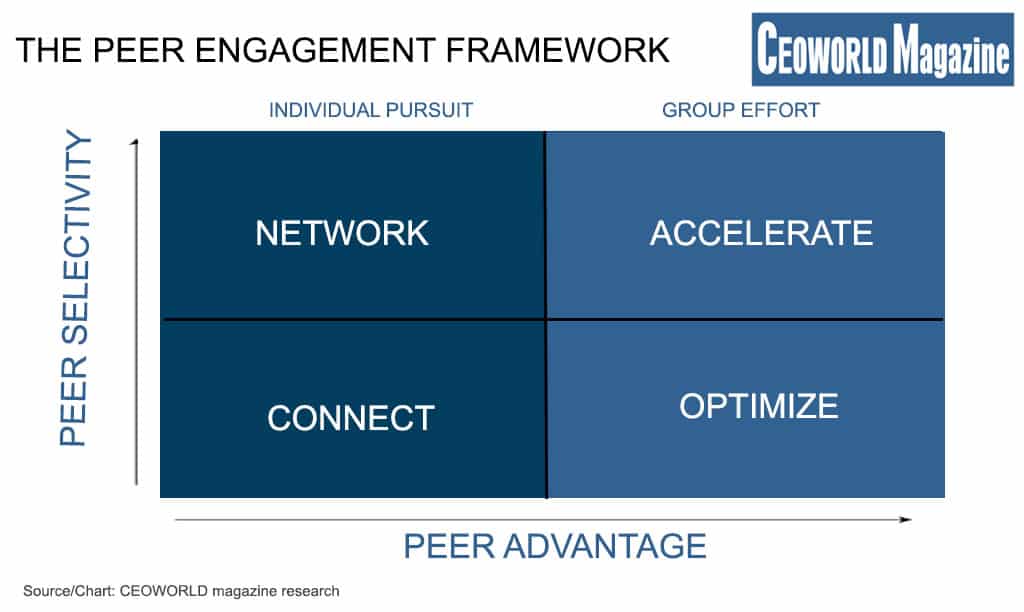How Great CEOs Maximize Peer Relationships

Most people build business relationships following a natural progression, and in doing so, engage with others in four stages: they connect, network, optimize and accelerate – in that order. Too many people, however, including many CEOs, don’t understand or ever experience the benefits of accelerate (to be defined later); largely, because they never explore beyond the first three. Great CEOs not only experience the value of what it means to accelerate, but also because the accelerate stage is so powerful, they prioritize these four stages of engagement in reverse order. They do so because they receive the greatest rewards when they accelerate, optimize, network and connect. That said, let’s define the terms and explore why.
Connecting is simply about making connections. Whether it’s meeting people for the first time at a business-after-hours or extending your reach through introductions online. This is where you plant seeds to grow relationships.
Some may regard this as networking, but during our research for The Power of Peers, networking emerged as being more purposeful. It was evident that the trust built from a more familiar relationship (beyond a connection) created the necessary comfort level for one person to feel confident enough to make introductions or personal recommendations to others. There was a tacit understanding that every time they did so, they were putting their personal credibility on the line. These two levels of relationships tend to be individual pursuits.
When it comes to participation beyond one-to-one to one-to-many, it becomes about optimizing and, for a select few, accelerating. You optimize when you work together in teams to bring a high level of excellence to achieving a common goal or developing a common work product. When you accelerate, you take what you learn from working in teams to achieve organizational goals (optimizing) to helping one another achieve individual goals (accelerating).
In the case of a CEO mastermind group, for example, a CEO from a bank works side by side with peers who lead many different types of organizations. A fellow member may run the local hospital, advertising agency, or manufacturing company. While the very concept of peer diversity may feel like a contradiction, broadening the definition of “peer” allows you to consider the value of working with people from different backgrounds and industries. Leaders who challenge themselves to accelerate embark on a journey of personal and professional growth that stretches them out of their comfort zone into a landscape that is unfamiliar yet rich with learning opportunities.
Generally speaking, people tend to connect more than they network, network more than they optimize, and optimize more than they accelerate. We found that CEOs, whose time is extremely valuable, invest their energy in these peer engagement activities in a manner that is counterintuitive to the rest of the word.
Why? Because CEOs invest their time in activities that yield the greatest value. Great CEOs understand that charting their company’s course for the future involves getting out of their company and industry silos to engage in rich conversations with other CEOs who empathize with the magnitude of their responsibility yet offer a view of the world through a different lens. Ask any high-performing CEO who is an experienced mastermind group member. Their peers help them broaden and deepen their knowledge. They then focus on taking optimizing to a whole new level – leveraging what they learned from working with their fellow CEO group members and showing their employees how high-performing groups collaborate.
Stanford’s Linda Darling-Hammond told me that when it comes to professors and teachers, the more they collaborate with one another, the more skilled they become at creating collaborative environments in their classrooms. The same holds true for CEOs and other company team leaders.
Networking involves purposeful interaction with select individuals who can help you and your organization grow. What you gain from accelerating and optimizing will help you be an even more purposeful and more successful networker. Finally, by staying connected you can further extend your reach and leverage additional resources and channels for intentional and collateral learning.
Those who discover what it means to accelerate use it to drive myriad advantages for themselves and their organizations. If you’re a CEO who has only experienced three of the four ways to engage with others, it’s time to find a peer group that’s right for you and watch the magic happen. If you’re not a CEO just yet, then joining a group of your peers may be just what you need to do to become one someday.
Written by Leo Bottary.
Have you read?
# How Brands Can Deliver the Experiences Customers Actually Want by Rhett Power.
# Amazing Yacht Charter Destinations in Asia.
# Top Grooming Tips for Women Entrepreneurs Under 30.
# Dressing Tips For Businessmen Above 60.
Bring the best of the CEOWORLD magazine's global journalism to audiences in the United States and around the world. - Add CEOWORLD magazine to your Google News feed.
Follow CEOWORLD magazine headlines on: Google News, LinkedIn, Twitter, and Facebook.
Copyright 2025 The CEOWORLD magazine. All rights reserved. This material (and any extract from it) must not be copied, redistributed or placed on any website, without CEOWORLD magazine' prior written consent. For media queries, please contact: info@ceoworld.biz









